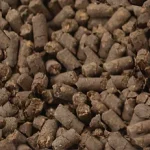In the ever-changing scenery of agriculture, more sustainable and eco-friendly practices have become more than a necessity. Among the varieties of innovation emerges organic fertiliser bricks with a positive outlook towards soil health and crop productivity. Therefore, we shall take a look at the organic fertiliser bricks in this scenario, expounding on the benefits and consequences that these materials come with for the future of farming.
The Rise of Organic Fertilisers
In traditional agriculture, plants were expected to help farmers achieve high outputs, and hence, chemically laden fertilisers have been used. But in the long run, this brings adverse environmental impacts and causes soil degradation, polluted water resources, and biodiversity loss. Organic fertilisers, however, have gained recognition for the fact that they improve the soil naturally, thus reducing the side effects of synthetic chemicals. In this respect, organic fertilisers use organic matter as a source of nutrients, through animal manure, compost, and plant residues.
Because they may naturally nourish the soil without having the negative side effects of synthetic chemicals, organic fertilisers have become more popular in spite of these worries. These fertilisers, which are made of organic materials like compost, animal dung, and plant leftovers, improve soil structure and microbial activity in addition to offering a balanced nutritional profile.
Introducing Worm Cast Bricks
New guidelines for crop nutrition are presented by the usage of organic fertiliser bricks. The foundation of this compact block is a well-balanced mixture of easily treatable organic ingredients. Fertiliser bricks differ significantly from fertilisers that are sold in bags in loose form, requiring farmers to dispense the substance and incur waste.
- Ease of Use: Bricks minimise problems in measuring and spreading loose matter for fertilisers. By being pre-measured for application, bricks require minimal handling time and enhance effective use.
- Precise Nutrient Delivery: Every brick has the precise amount of nutrients in the perfect ratios to provide crops with crops that are more suited to their requirements. By minimising waste and removing nutrient runoff, this precision helps plants absorb nutrients more effectively.
- Long-lasting Effects: Organic fertiliser bricks are formulated so as to control nutrient release rates over time. This makes sure that they are long-lasting, thus providing consistent nourishment throughout the growth period for crops. This lengthy release of nutrients supports healthy plant development as well as better resilience against environmental stressors.
- Environmental Sustainability: Fertiliser bricks from organic materials promote soil health and maintain biodiversity conservation. They promote soil microbes in order to propagate the beneficial microorganisms of soil and reduce the environmental carbon footprint from conventional fertilisers.
Navigating Challenges and Opportunities
However, while the benefits of organic fertiliser bricks are indisputable, the widespread adoption of these products faces some obvious challenges:
- Cost Considerations: When it comes to investments, there are clear differences between the costs of conventional and organic fertilisers. Their long-term benefits for production, soil health, and environmental sustainability may even outweigh the initial installation expenses.
- Knowledge and Awareness: The best way to get farmers interested in organic fertilisers involves offering them education on their benefits and technical training on how to use them properly. This includes extension services, training programs, and peer-to-peer learning networks for knowledge sharing and capacity building.
- Market Demand: In increasing consumer awareness and demand for organic produce, an opportunity comes up for farmers to realise extra profits. Good agricultural practices, which are not only good for the environment but also for profitability, will enable a robust farming industry.
- Supporting Policy: Organic farming is a great opportunity, in that adoption to sustainable agriculture could be accelerated by introducing policy support or delayed payment methods. Visit Worm Hit’s website to explore this area of support to agriculture people.
Choose Your Fertiliser Provider
As a farmer or gardener, it is important for you to make sure that your supplier is authentic. Or else it is simply gambling plant health with cheap and chemical laden fertiliser. Worm Hit’s worm casting-made fertiliser is rich in essential nutrients for plant growth, providing a steady supply of nutrients to the plants as they grow. Worm Hit Fertilisers are sold in pellet and brick forms to suit garden to large field applications. Explore more of Worm Hit’s organic products other than pellets and bricks, such as quick starters. Send your enquiry to Worm Hit today.
Moving to Organic Farming Made Easy
For a greener and more sustainable future, organic fertiliser bricks become the beacon of hope in modern agriculture. Soil health is achieved while nurturing crop productivity, and environmental concerns are minimised by these innovative fertilisers. In such a way, they set the way for a regenerative approach to farming. With this realisation, the farmers and their commitment towards organic agriculture, lay the seeds for the prosperity of generations to come, laying down a harmonious relationship between humans and the planet known as Earth.




